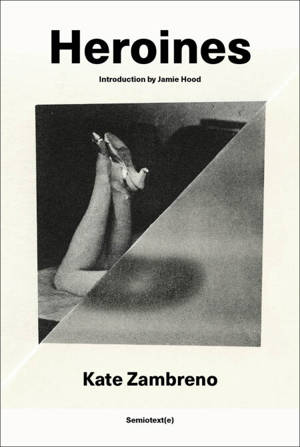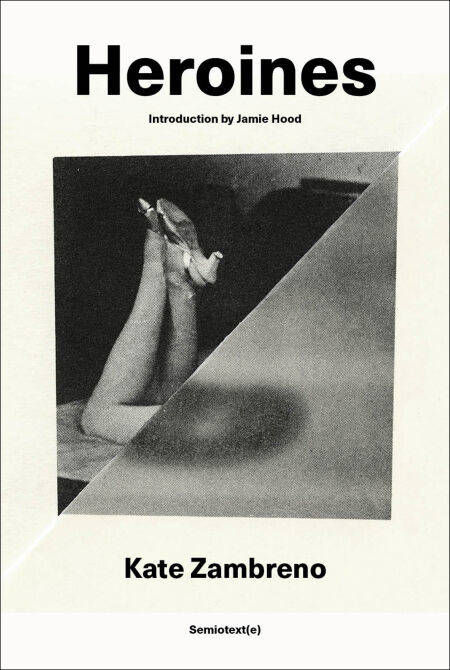
- Retrait gratuit dans votre magasin Club
- 7.000.000 titres dans notre catalogue
- Payer en toute sécurité
- Toujours un magasin près de chez vous
- Retrait gratuit dans votre magasin Club
- 7.000.0000 titres dans notre catalogue
- Payer en toute sécurité
- Toujours un magasin près de chez vous
17,69 €
+ 17 points
Format
Description
A manifesto reclaiming the wives and mistresses of literary modernism that inspired a generation of writers and scholars, reissued after more than a decade.
I am beginning to realize that taking the self out of our essays is a form of repression. Taking the self out feels like obeying a gag order—pretending an objectivity where there is nothing objective about the experience of confronting and engaging with and swooning over literature.
On the last day of December 2009, Kate Zambreno, then an unpublished writer, began a blog called "Frances Farmer Is My Sister," arising from her obsession with literary modernism and her recent transplantation to Akron, Ohio, where her partner held a university job. Widely reposted, Zambreno's blog became an outlet for her highly informed and passionate rants and melancholy portraits of the fates of the modernist “wives and mistresses," reclaiming the traditionally pathologized biographies of Vivienne Eliot, Jane Bowles, Jean Rhys, and Zelda Fitzgerald: writers and artists themselves who served as male writers' muses only to end their lives silenced, erased, and institutionalized. Over the course of two years, Frances Farmer Is My Sister helped create a community of writers and devised a new feminist discourse of writing in the margins and developing an alternative canon.
In Heroines, Zambreno extends the polemic begun on her blog into a dazzling, original work of literary scholarship. Combing theories that have dictated what literature should be and who is allowed to write it—she traces the genesis of a cultural template that consistently exiles feminine experience to the realm of the “minor,” and diagnoses women for transgressing social bounds. “ANXIETY: When she experiences it, it's pathological,” writes Zambreno. “When he does, it's existential.” With Heroines, Zambreno provided a model for a newly subjectivized criticism, prefiguring many group biographies and forms of autotheory and hybrid memoirs that were to come in the years to follow. A book that has become its own canon, Heroines was named one of the "50 Books that define the past 5 Years in Literature" by Flavorwire, an "Essential Feminist Manifesto" by Dazed, and one of the "50 Greatest Books by Women" in Buzzfeed.
I am beginning to realize that taking the self out of our essays is a form of repression. Taking the self out feels like obeying a gag order—pretending an objectivity where there is nothing objective about the experience of confronting and engaging with and swooning over literature.
On the last day of December 2009, Kate Zambreno, then an unpublished writer, began a blog called "Frances Farmer Is My Sister," arising from her obsession with literary modernism and her recent transplantation to Akron, Ohio, where her partner held a university job. Widely reposted, Zambreno's blog became an outlet for her highly informed and passionate rants and melancholy portraits of the fates of the modernist “wives and mistresses," reclaiming the traditionally pathologized biographies of Vivienne Eliot, Jane Bowles, Jean Rhys, and Zelda Fitzgerald: writers and artists themselves who served as male writers' muses only to end their lives silenced, erased, and institutionalized. Over the course of two years, Frances Farmer Is My Sister helped create a community of writers and devised a new feminist discourse of writing in the margins and developing an alternative canon.
In Heroines, Zambreno extends the polemic begun on her blog into a dazzling, original work of literary scholarship. Combing theories that have dictated what literature should be and who is allowed to write it—she traces the genesis of a cultural template that consistently exiles feminine experience to the realm of the “minor,” and diagnoses women for transgressing social bounds. “ANXIETY: When she experiences it, it's pathological,” writes Zambreno. “When he does, it's existential.” With Heroines, Zambreno provided a model for a newly subjectivized criticism, prefiguring many group biographies and forms of autotheory and hybrid memoirs that were to come in the years to follow. A book that has become its own canon, Heroines was named one of the "50 Books that define the past 5 Years in Literature" by Flavorwire, an "Essential Feminist Manifesto" by Dazed, and one of the "50 Greatest Books by Women" in Buzzfeed.
Spécifications
Parties prenantes
- Auteur(s) :
- Editeur:
Contenu
- Nombre de pages :
- 320
- Langue:
- Anglais
- Collection :
Caractéristiques
- EAN:
- 9781635902099
- Date de parution :
- 04-03-24
- Format:
- Ebook
- Protection digitale:
- Adobe DRM
- Format numérique:
- ePub

Les avis
Nous publions uniquement les avis qui respectent les conditions requises. Consultez nos conditions pour les avis.






